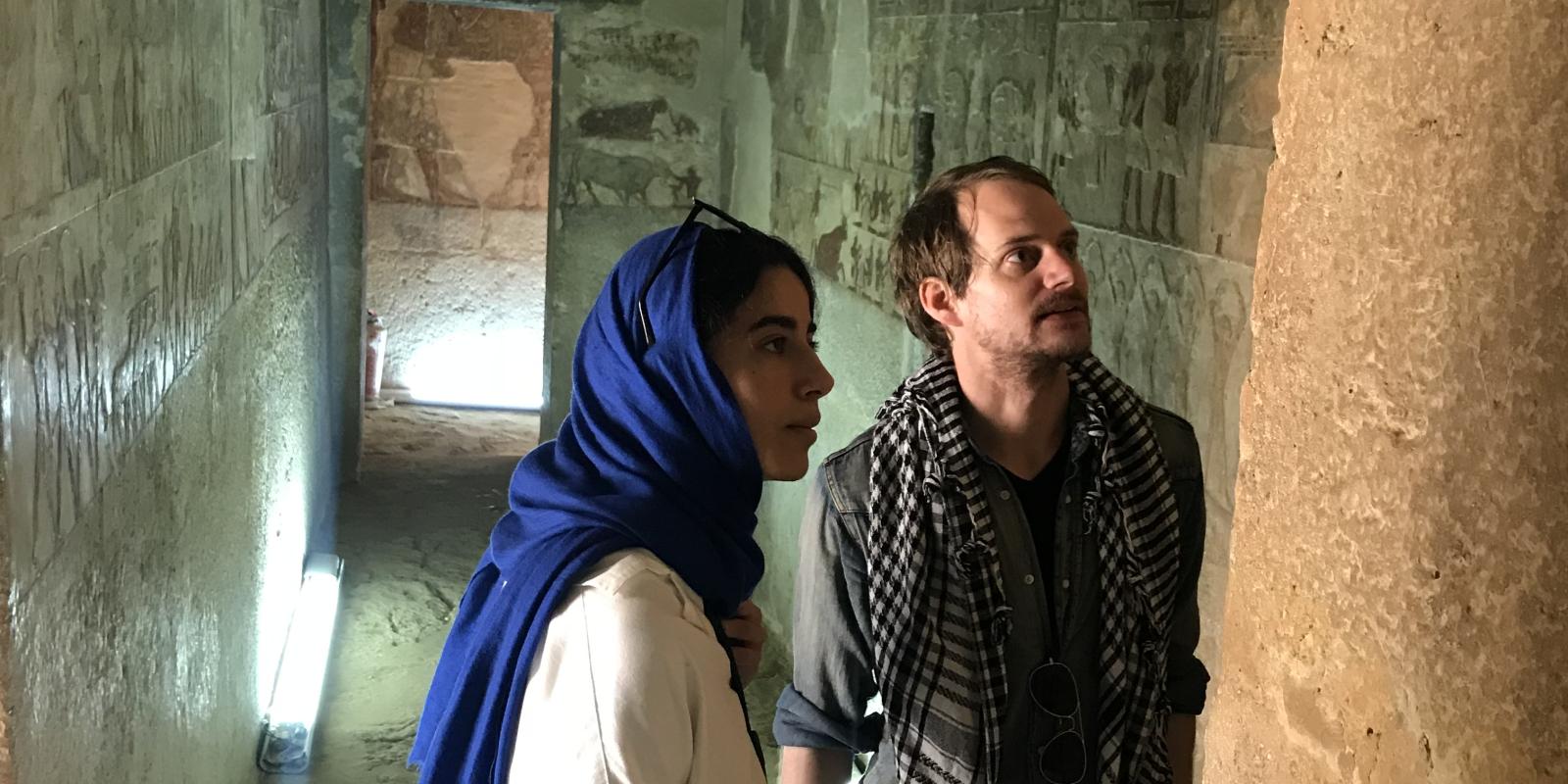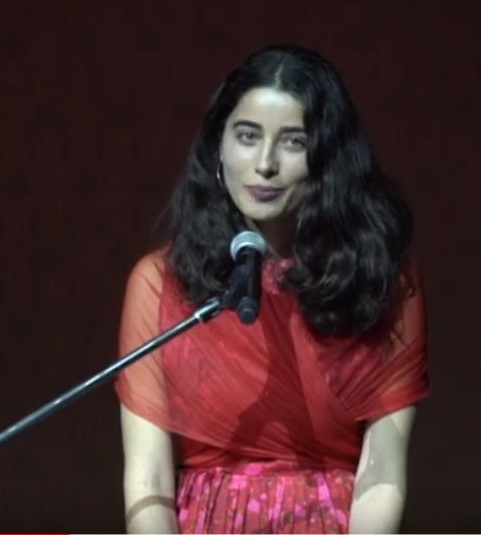
Harvard PhD Student: 'It is Essential for Egyptologists to See History in Person in the Place Where It All Happened'
For any budding Egyptologist, the opportunity to study the hieroglyphics and history of Egypt's ancient civilizations on-site is a chance not to pass up. Graduate student Julia Viani Puglisi, who is currently pursuing her PhD in Egyptology at Harvard’s Department of Near Eastern Languages and Civilizations, decided to do just that — studying Egyptology for a semester at AUC as a recipient of the Simpson Endowed Scholarships for Year-Abroad Program in Egyptology. Puglisi came to AUC as the result of a recent partnership with Harvard University, facilitating student exchange and future collaboration between both institutions.
Puglisi earned her bachelor's in classical languages from the University of California, Berkeley and her master's in Egyptology from Indiana University, Bloomington, where she won the Indiana University 2018 Distinguished Master’s Thesis Award. Titled The Mechanics of Egyptian Paronomasia: Applying Pattern Recognition Search to the Ramesside Dream Manual, Puglisi's thesis is the highest evaluated thesis in the Math/Physical Sciences/Engineering category.

Puglisi is grateful for the opportunity to study Egyptology firsthand in the land of the Pharaohs. Speaking at AUC's Centennial Campaign launch in February 2019, Puglisi said:
“I am honored to be here representing my field and, now, two institutions as part of a new generation of Egyptologists empowered to learn from Egyptians and this country’s deep cultural heritage. I am here because I want to contribute to the dialogue of Egyptology’s future in Egypt. As a digital humanist and devoted student to Egypt’s past, I hope to push my discipline forward and encourage young Egyptologists to break convention. With the generous support of the Department of Egyptology and its fearsome faculty — my new mentors — I am able to know how it feels to study Egyptology in Egypt. I am here because I believe that the future of a discipline rests on its ability to reignite sparks of childlike wonder — when you’re too old to play anymore. Egypt has that magic. I am deeply grateful and thrilled for the opportunity to contribute to a strong legacy of Egyptology at The American University in Cairo."
News@AUC spoke with Puglisi about her passion for Egyptology and her learning experience at AUC:
Q: What originally got you interested in Egyptology?
Like most Egyptologists, my passion emerged when I was young and never went away. The hieroglyphic script caught my attention first, in particular, the inscriptions on monumental structures half-buried under layers of debris and sand. Although I could write my name with the hieroglyphic "alphabet" (snake - quail chick - mouth - reed - vulture
) I was dissatisfied with my inability to make sense of the enigmatic texts inscribed on tomb and temple walls. What did they truly say? It was my dream to read their language and to understand how they felt and expressed their world.
Q: What was your favorite part about attending AUC?
The Egyptology faculty is the primary reason why I chose AUC. I felt that there was a harmonious balance between my professors, which created a rich, open learning environment. I also greatly enjoyed the composition of my schedule and how the conversation and material explored in each course complemented and enhanced one another throughout the semester.
Thank you, Fayza Haikal, Salima Ikram, Lisa Sabbahy and Mariam Ayad for your endless support and the passion with which you shared your knowledge.
I also loved the bus rides and the University Garden with its rows of grapefruits, oranges and lemons. I loved that my backpack was packed with citruses of all kinds in March and April. I remember the transit in and out of New Cairo: I would arrive on campus as the sun was rising and leave when it was setting. Every day, the R9 bus was filled with dynamic and colorful conversations between students, professors and visiting scholars. Specifically, I remember connecting more with two of my professors during these commutes — I spoke about my dreams as a scholar and consulted them on my fears as I embark further on my path in my field. It was very therapeutic.
Q: Would you encourage other international Egyptology students to come to Egypt to study?
Yes, I would highly recommend the program and the opportunity to live in Cairo. I think it is essential for young Egyptologists to familiarize themselves with the culture and spaces that modern Egyptians inhabit and experience and to be able to see history in person in the place where it all happened.
Q: Do you have a hero?
My mother and father, who worked hard to do what they love and taught their children to chase their dreams to the end. They're the best people I know.